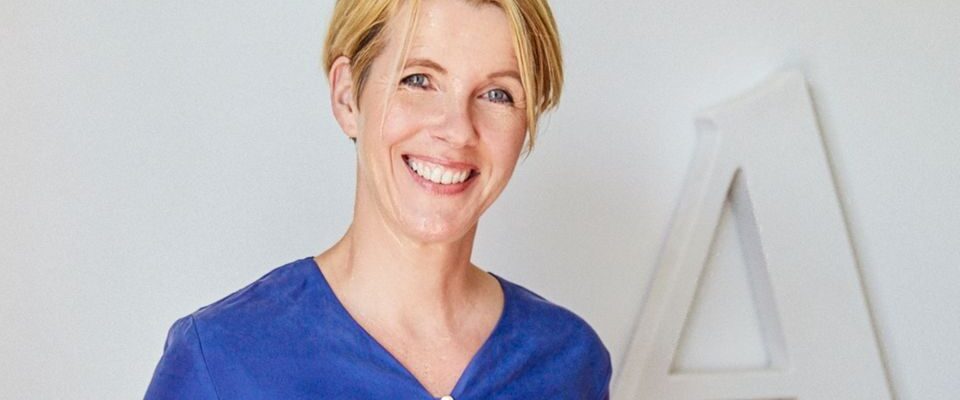Some sentences do something to us. Not always immediately and not always consciously, but somehow they stick and mature into insights that will one day have meaning. This happened to our guest author Andrea Huss with the following sentence.
Andrea Huss is a systemic coach in Hamburg and accompanies women in change processes. For us she reports every month on a case from her practice.
© Caren Detje
Sometimes a statement that is only made in passing becomes the decisive signpost. That’s how I felt at a webinar about “New leadership”. At some point the sentence came out “Borrowing Strength Builds Weakness”. I wrote it in my notebook and it wouldn’t let me go.
For many years as a manager, it was very important to me to always be there for my team. To have an open ear and a feeling for when someone needs help. Comments like “You’re not the mother of the company” left me cold. I was convinced that I was doing the right thing when I jumped to the side of overwhelmed employees or offered to mediate in difficult conversations. I accepted that it was for a good cause.
The phrase about borrowed strength suddenly made my behavior look very different: Had I possibly prevented team members from, as the saying goes, being able to grow with their challenges? I remembered moments when people rushed into my office for an assessment or a decision. I felt pressured – but also flattered to be so in demand and indispensable.
Letting go instead of too much support
Realizing that too much caring also weakens the self-responsibility of the team was an eye-opener for me, which I pass on in many coaching sessions today. Recently, for example, with a client who was very committed to her team. I asked her to get feedback on how her leadership style was received. In the next session, she reported that her working student thanked him because he felt very valued, but also said: “With new projects you always ask: ‘What else do you need from me?’. Just ask: ‘What do you still need?’ because as often as you think you don’t have to do anything for me.”
Offer more help than necessary – why are we doing this For various reasons: 1. Because we were taught in our parents’ house that we are only good people if we help the weaker and are there for others. 2. Because we have an inner driver within us who tirelessly whispers to us: “Be strong!” and sees weakness as failure. 3. Because we unconsciously make others dependent on us in order to secure our importance.
So I now pay quite a lot of attention to the motives for which I help others. And yet I fell into the trap again the other day. I had a client that I coached online. Each appointment began with her apologizing for not doing the homework I had given her to reflect on. She’s so sorry, she wailed, she just couldn’t make it. I always reacted in the same way: I reassured them that it wasn’t all that bad.
How do you really help your counterpart?
After ten coaching sessions, I realized that she had stopped doing anything for coaching at all. I was dissatisfied with the situation and asked my supervisor to speak to me. When I described how I often feel like a teacher whom the student grovels in front of, he asked what I did to prevent this. I said I reacted very understandingly to make the other person feel better. His comment: “And it is precisely with your caring that you have increased the gap between you. You could just as well have said: ‘It’s your choice if you don’t do your homework, you’re an adult.'” – “It wouldn’t be came off as a provocation?” I asked. “It would have created an equal footing,” he replied. “Your client would have understood that she didn’t show enough initiative herself.”
At first I was annoyed by my supervisor’s advice, then I realized that I had unconsciously chosen to be the nice coach, not necessarily the developmental, uncomfortable one. Strength – I also include comfort and compassion in this – can also be wrong. Because we allow people in their weak moments to remain weak instead of discovering their own strength.

Reinhard Haller: “The miracle of appreciation: How we make others strong and become stronger ourselves”, 208 pages, 17.99 euros, Gräfe und Unzer.
©PR
Little exercise
You tend to always be the strong one? Do you usually have advice or a helping hand ready right away? Try what happens if you don’t do both. How do you feel about it, can you stand it at all? And what effect does it have on the other? Especially in long-term relationships, it is enlightening to step out of your traditional role. Maybe your opponent is much stronger than you think?
